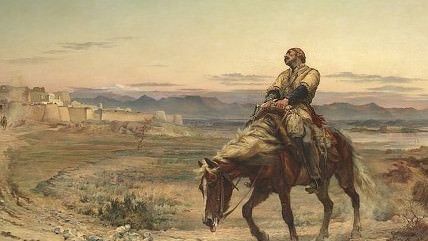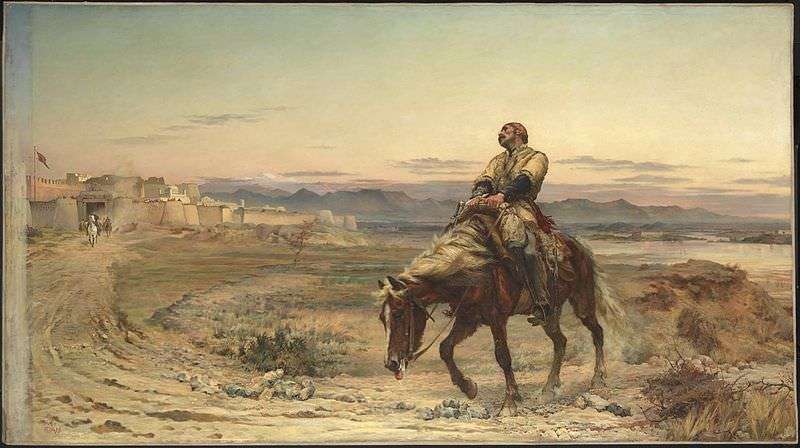Are There Lessons We Can Learn From the First Anglo-Afghan War?


Last Monday was the 172nd anniversary of William Brydon's arrival at Jalalabad. Brydon, who served as an assistant surgeon in the British East India Company Army, was (so the legend goes) the only survivor of one of the worst defeats in British military history, the retreat from Kabul to Jalalabad during the First Anglo-Afghan War. Thousands of British troops and civilians who followed their camp were either picked off or captured by tribesmen or succumbed to the the winter conditions as they traveled.
Brydon arrived in Jalalabad on a weak horse with a slashed skull on Jan. 13 1842 and said, "I am the army." when asked where his comrades were.
The story of the British retreat from Kabul is only one of the many tales that make up part of the "Afghanistan is where empires go to die" rhetoric that is sometimes heard in discussions about the current war in Afghanistan.
In September 2009, Dahr Jamail wrote in Global Research that,
The United States Empire is following a long line of empires and conquerors that have met their end in Afghanistan. The Median and Persian Empires, Alexander the Great, the Seleucids, the Indo-Greeks, Turks, Mongols, British and Soviets all met the end of their ambitions in Afghanistan.
As Seth Jones at the RAND Corporation pointed out in a review of William Dalrymple's Return of a King: The Battle for Afghanistan, 1839–42, "Massive social and political changes in Afghanistan make it thorny to pull many lessons from the first Anglo-Afghan war."
That said, Afghanistan is proving a difficult place for the U.S.-led forces to manage. NPR recently reported that despite billions of dollars being spent on stopping opium production Afghanistan could still become a "narco-criminal state," and today the BBC reported that while it is unlikely that the Taliban are in a position to retake control of the country now it is possible that the election of a weak president could prompt the sort of takeover seen in 1996.


Show Comments (18)